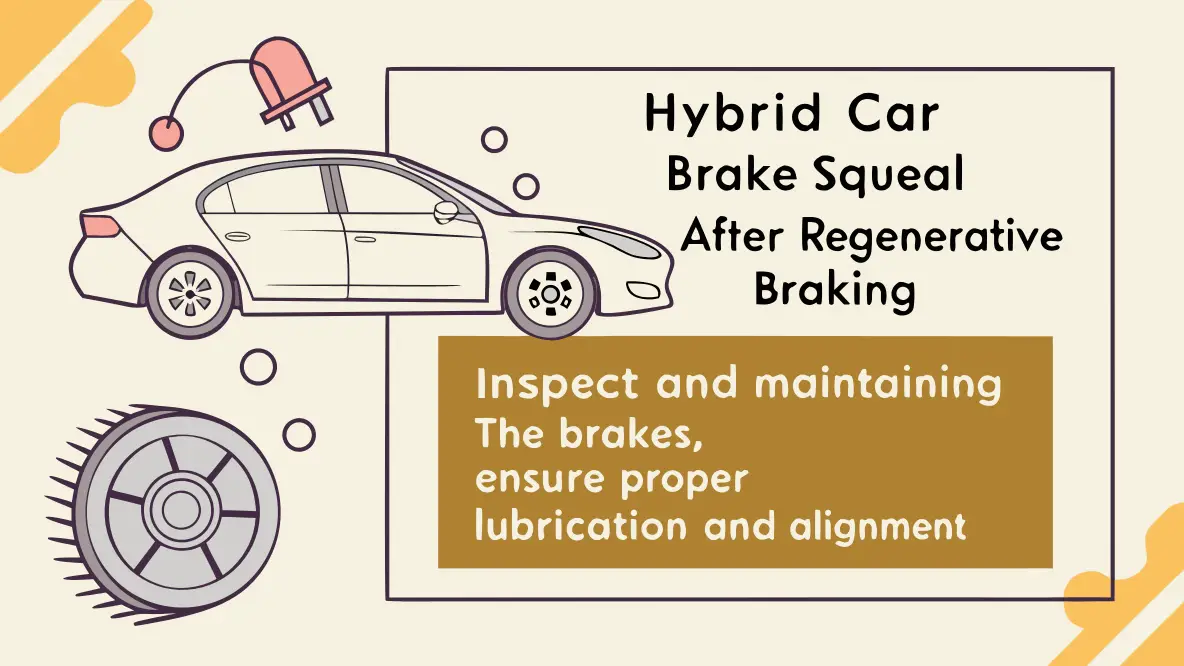Hybrid cars are engineered for efficiency, using regenerative braking to recover kinetic energy and store it in the battery. While this technology reduces wear on mechanical brakes, many hybrid owners notice a surprising and often irritating issue: brake squeal after regenerative braking.
This high-pitched noise may occur during light stops, at low speeds, or when switching from regenerative braking to friction braking. Beyond being annoying, brake squeal can be a sign of underlying mechanical or environmental factors that need attention.
In this comprehensive guide, we’ll explore why hybrid brakes squeal, how regenerative braking contributes, and — most importantly — proven methods to stop the noise for good.
Understanding Regenerative Braking
Regenerative braking is a process in which an electric motor runs in reverse during deceleration, converting kinetic energy into electrical energy to recharge the battery.
When regenerative braking is active:
- The electric motor provides most of the deceleration.
- The mechanical brake pads and rotors are used less frequently.
- This leads to less heat buildup and sometimes light corrosion or glazing on brake surfaces.
This reduced usage is great for pad longevity but can unintentionally create perfect conditions for brake squeal.
Why Hybrid Car Brakes Squeal After Regenerative Braking
1. Brake Pad Glazing
Because hybrid brakes are used less frequently, pads may develop a hardened, glass-like surface called glazing. This reduces friction consistency and creates squealing.
Solution: Lightly resurface pads or replace with hybrid-optimized low-noise brake pads.
2. Rotor Surface Rust
In hybrids, the rotors remain exposed to moisture but get less frequent friction cleaning. Overnight or in humid conditions, a thin rust layer forms, which can squeal when the pads scrape it away.
Solution: Perform occasional controlled hard stops to clean the rotors.
3. Pad Vibration
Brake squeal is essentially a vibration issue. Pads vibrate against the rotor at a frequency we hear as a squeal. Poorly fitted pads, missing shims, or worn anti-rattle clips can make this worse.
Solution: Inspect hardware, replace shims, apply anti-squeal compound.
4. Pad Material
Some OEM hybrid brake pads prioritize longevity over noise control. Semi-metallic pads can be louder, especially in low-speed stops after regen braking.
Solution: Switch to ceramic pads designed for quiet performance.
5. Moisture & Temperature Changes
Morning dew, car washes, or temperature swings can lead to temporary squeal, especially when brakes are cold.
Solution: This is usually harmless and disappears after a few stops.
Step-by-Step Guide to Stop Hybrid Brake Squeal
Step 1: Perform a Brake Cleaning Drive
- Find a safe, empty road.
- Accelerate to ~40 mph, then firmly brake to ~5 mph.
- Repeat 3–5 times to heat and clean pads/rotors.
- Avoid triggering ABS.
This removes surface rust and glazing.
Step 2: Inspect Brake Components
Check:
- Pad thickness & glazing
- Rotor surface (pitting, rust, grooves)
- Hardware: shims, clips, and caliper movement
Replace any damaged components.
Step 3: Upgrade to Hybrid-Specific Brake Pads
Choose low-dust, ceramic pads designed for hybrids. Examples:
- Akebono ProACT Ultra-Premium Ceramic
- Bosch QuietCast Premium Ceramic
These reduce squeal frequency and dust buildup.
Step 4: Lubricate Contact Points
Apply high-temperature brake lubricant to:
- Pad backing plates
- Caliper guide pins
- Contact points where pads touch hardware
Do not get grease on the pad friction surface.
Step 5: Consider Rotor Replacement or Resurfacing
If rotors are warped or deeply pitted, resurfacing or replacing them ensures smooth pad contact and reduces vibration.
Step 6: Use Brakes More Often
- Occasionally brake earlier and more firmly (safely) to engage the friction brakes.
- This helps maintain clean rotor and pad surfaces.
Maintenance Tips to Prevent Future Squeal
- Monthly Hard Stop Session: Perform 2–3 strong stops to burn off contaminants.
- Regular Inspections: Every 6–12 months, have a mechanic inspect pads, rotors, and hardware.
- Avoid Long Storage in Humid Conditions: If storing your hybrid, periodically drive it to clean brake surfaces.
- Use OEM or High-Quality Aftermarket Pads: Cheap pads are often the worst offenders for noise.
Infographic:
How to Stop Hybrid Car Brake Squeal After Regenerative Braking
CAUSES:
1. Brake Pad Glazing (Light pad usage)
2. Rotor Surface Rust (Humidity + low use)
3. Pad Vibration (Worn hardware)
4. Pad Material (Semi-metallic noise)
5. Moisture & Temp Changes
SOLUTIONS:
- Controlled Hard Stops
- Inspect pads & rotors
- Upgrade to ceramic pads
- Lubricate hardware
- Replace/Resurface rotors
- Use brakes more often
Frequently Asked Questions
Q1: Is hybrid brake squeal dangerous?
Not usually, but persistent squeal can indicate worn pads, glazed surfaces, or hardware issues that may reduce braking efficiency.
Q2: Will regenerative braking wear out my brakes faster?
No — in fact, it extends brake life. However, it may lead to surface corrosion from underuse.
Q3: Should I disable regenerative braking to prevent squeal?
No. Instead, incorporate occasional friction braking to keep components clean.
Q4: Can I fix brake squeal myself?
Yes, minor squeal can often be fixed with cleaning drives and lubrication. For persistent issues, consult a mechanic.
Q5: Do ceramic pads completely eliminate squeal?
They significantly reduce it but may still squeal in extreme humidity or cold starts.
Conclusion
Brake squeal after regenerative braking in hybrids is usually caused by underused friction brakes — leading to pad glazing, rotor rust, or vibration.
By cleaning your brakes regularly, upgrading pad materials, and maintaining hardware, you can restore quiet operation while keeping your hybrid’s regenerative system working efficiently.
When addressed early, brake squeal is an easy fix that protects both your driving comfort and braking performance.
References
- Bosch Automotive. (2023). Understanding Hybrid and EV Brake Systems.
- Akebono Brake Corporation. (2024). Ceramic vs. Semi-Metallic Brake Pads.
- Car and Driver. (2023). “Regenerative Braking Explained.”
- Bridgestone Tire & Service Centers. (2024). Why Brakes Squeal and How to Stop It.

